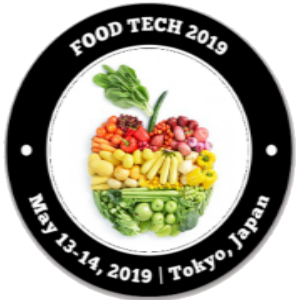
Ozlem Tokusoglu
Manisa Celal Bayar University, Turkey
Title: Food and beverage methylxanthines, glycoalkaloids, pyrolizidines and phenolic alkaloids: Processing effects
Biography
Biography: Ozlem Tokusoglu
Abstract
Alkaloids are a class of naturally occurring chemical substances which mostly include biologically important amine structures and contain some related constituents in plants based food and beverages and animal based foods. Alkaloid compounds demonstrate greatly diverse matrix and origins as well as pharmacological and/or nutraceutical action which often show a marked physiological action. Food and beverage alkaloids can be take part in food chemistry, food industrial applications, food supplement and medical drug fortifier. Alkaloids are aminoacid derivatives that have a bitter taste and are found as secondary metabolites in potato plants as potatoes glycoalkaloids (majorly as solanine, solanidine) and in tomato plants as tomatine glycoalkaloids. Piperidine alkaloids from black peppers with pyridine structure and sanguinarine, narceine alkaloids from pomegranate fruits with isoquinoline based structure are categorized as phenolic alkaloids. Caffeine, theobromine and theophylline in most consumed non-alcoholic beverages such as coffee, tea, cocoa majorly and chocolate and herbal teas as less are classified as methylxanthine alkaloids. Caffeine is found in varying quantities in the beans, leaves, and fruit of some other plants including kola nuts, yerba mate, guarana berries etc. where it acts as a natural pesticide that paralyzes and kills certain insects feeding on the plants. Caffeine content depends on strength of the brew, growing conditions, processing techniques and other variables. The pyrrolizidine alkaloid-containing plants are mostly members of the composite plants (Asteraceae), Forget Me Not or borage families (Boraginaceae) as well as the legume family (Fabaceae). Amongst plants containing pyrrolizidine alkaloids native in Germany tansy ragwort, common groundsel and viper’s bugloss were found as examples. Specific alkaloids in foods and beverages can alter after food processing containing cooking, boiling, steaming, frying, brewing, etc. as conventional food processing. Also food and beverage alkaloids can be altered by novel food processing like gamma irradiation and microwave processing.

